U.S. President Donald Trump has signed an executive order suspending the enforcement of the Foreign Corrupt Practices Act (FCPA)—a law that has been in place for nearly half a century to prevent bribery in international business dealings. The move has sparked significant debate, with critics arguing that it could encourage corruption, while Trump and his supporters claim it levels the playing field for American companies.
Trump’s Argument: FCPA Hurts U.S. Businesses
The FCPA prohibits U.S.-linked companies and individuals from offering bribes or gifts to foreign officials to win or retain business. Trump has long been critical of the law, arguing that it puts American companies at a disadvantage against international competitors who do not face such restrictions.
According to the fact sheet released alongside the executive order, Trump believes that the strict anti-bribery provisions of the FCPA make it harder for American firms to compete globally. He argues that many companies are forced to operate under unfair conditions, as competitors from other countries often engage in practices that U.S. firms are legally barred from.
The order directs Attorney General Pam Bondi to halt the enforcement of the FCPA until new guidelines are introduced. The administration claims that until a revised framework is in place, suspending the law will provide relief to U.S. businesses.
Background: What is the FCPA?
The Foreign Corrupt Practices Act, enacted in 1977, was designed to combat corruption by prohibiting U.S. businesses from bribing foreign officials. Over the years, it has been used to impose heavy fines on major global corporations, including Glencore and Goldman Sachs, for violating its provisions.
Despite its intentions, Trump and his supporters argue that the FCPA discourages companies from expanding internationally. Trump has called the law a “disaster”, claiming that it prevents foreign entities from wanting to do business with American firms.
Opposition and Criticism
Legal experts, corporate leaders, and former U.S. officials have criticized Trump’s decision. Richard Nephew, a senior research scholar at Columbia University and a former State Department anti-corruption coordinator, voiced his concerns on X (formerly Twitter).
According to Nephew, most American companies actually support the FCPA because it allows them to refuse bribes without losing business to unethical competitors. He argues that suspending the law could lead to a race to the bottom, where corruption becomes the norm rather than the exception.
The Bigger Picture
Trump previously attempted to weaken the FCPA during his first term, but efforts to repeal or revise the law faced significant opposition. This new executive order represents his most direct attempt yet to curb its enforcement.
While some business leaders may welcome the move, critics warn that it could damage America’s reputation as a leader in anti-corruption efforts. As the administration prepares to introduce new enforcement guidelines, the debate over corporate ethics and international business fairness is likely to intensify.
What’s Next?
The suspension of FCPA enforcement is expected to face legal and political challenges. Lawmakers, regulators, and corporate watchdogs will closely monitor how this decision impacts U.S. businesses and global anti-corruption efforts. Whether the new guidelines will strike a balance between competitiveness and ethical responsibility remains to be seen.
US Lawmakers Urge Probe Into DoJ’s Indictment of Adani Officials
Six US lawmakers have written to Attorney General Pam Bondi, urging an investigation into the Biden administration’s Department of Justice (DoJ) for indicting Adani Group officials. They argue that the case, which involves alleged bribery in India, should have been handled by Indian authorities instead of the US. The lawmakers call the indictment a “misguided crusade” that could harm US-India relations, especially as Donald Trump prepares to return to office.
They emphasize that Adani Group has contributed billions to the US economy and created jobs, warning that such actions could discourage future investments. Citing Trump’s focus on economic growth and strong India-US ties, they urge a probe into the DoJ’s decision, questioning whether external factors influenced the move. Forbes also recently called the indictment a “strategic blunder” that could weaken US alliances, especially in countering China’s influence.
Bringing you the latest updates on finance, economies, stocks, bonds, and more. Stay informed with timely insights.

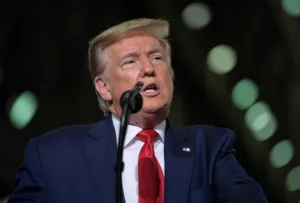


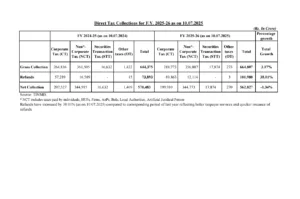
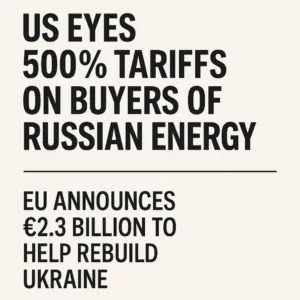


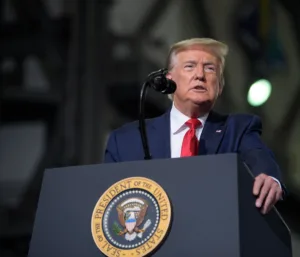




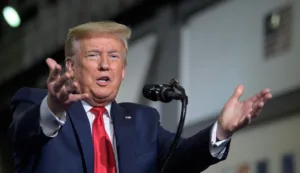
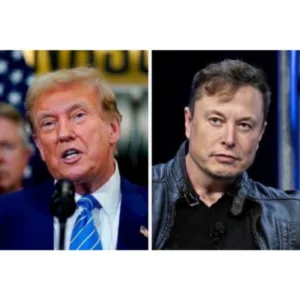


Be First to Comment